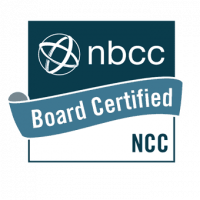What Is Grief Counseling?

Free Grief & Loss Consultation
Table of contents
- What is grief?
- Symptoms of grief
- 5 stages to the grief counseling process
- Does grief counseling help?
- What's the difference between grief counseling & therapy?
- What to expect during grief counseling?
- What are the grief counseling techniques?
- Helpful tips to dealing with grief.
- Where do I begin my recovery?
Grief counseling is a powerful tool to help individuals heal after experiencing a loss or trauma. It gives people an opportunity to process and understand their emotions, and create a plan for moving forward in life that honors their grief. As a woman therapist, I have seen firsthand the extraordinary healing power of allowing someone to give voice to their bereavement.
When engaging in grief counseling, it’s important for individuals to take time for self-care so they can tap into their innermost feelings without feeling overwhelmed or shut down. This means setting boundaries around when it’s okay to talk about the trauma or loss, and when it’s better just to relax and enjoy life — whether that means taking deep breaths, going for a walk, listening to music or engaging in some other activity that brings calmness and peace.
By providing a safe space where healing can occur, therapists can help clients identify ways of processing loss that are right for them — whether through creative expression like writing or art, talking with friends and family members who are supportive, or engaging in spiritual practices such as prayer or meditation. Grief counseling helps people create rituals that provide closure while also honoring the importance of the relationship with the person who has passed away.
Grief defined - What is it?
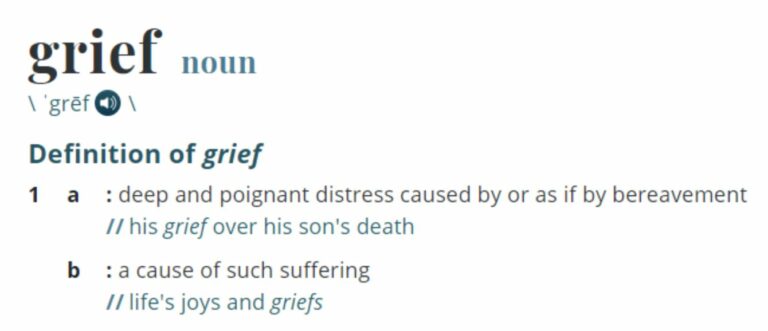
Grief is a normal and natural response to a loss or trauma. It’s the emotional pain we feel when something important has been taken away from us. Whether that’s the death of a loved one, a loss in relationships, or any other kind of setback or disappointment. Although grief can be uncomfortable and difficult to experience, it is also part of what makes us human and helps us process our emotions so we can move forward with our lives.
As a therapist, I have seen firsthand how grief can affect people differently, especially in children and teens. For younger people, understanding grief can be especially challenging because they may not have the words or tools to express their feelings yet. So it’s important for adults to give them time to talk about it in terms that make sense for their age level, like talking about their sadness as feeling “blue” or asking questions about what they think might help make them feel better.
It’s also helpful for kids to understand that everyone deals with grief in different ways. It also takes them different amounts of time to heal. There’s no right or wrong way to do it. They may enjoy doing activities together that help express their emotions, such as writing stories or drawing pictures, or engaging in calming exercises like yoga and breathwork. By understanding how children respond to grief, adults can better support them on their healing journey.
Leading Grief and Loss Counselor in Frisco, Texas.

MS, LPCC, LPC, NCC
Therapist | Licensed Professional Clinical Counselor | Nationally Certified Counselor
With more than 15 years of experience as a dedicated grief and loss therapist, I am skilled in guiding individuals through the challenging process of grief and healing. My compassionate, tailored approach emphasizes the importance of trust, resilience, and emotional intelligence, allowing me to provide the support you need as you navigate the intricacies of your grieving journey. Please feel free to contact me today to arrange your initial session and take the first step towards a brighter, more fulfilling future.
Megan holds grief and loss counseling licensure in both Texas and Minnesota, ensuring that she meets the professional standards required in both states. NorthStar Counseling & Therapy, where Megan provides her compassionate services, is conveniently situated at 2591 Dallas Parkway, Suite 300, in Frisco, TX.
Symptoms of grief and how it works
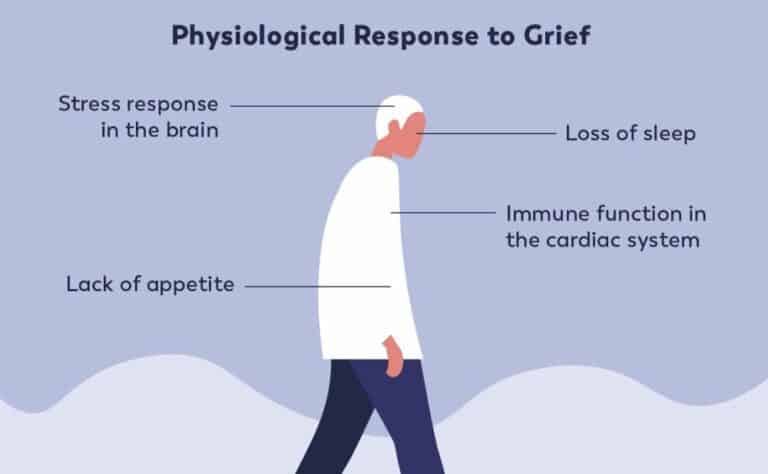
Grief can come with a range of emotions, from deep sadness and despair to anger and guilt. Everyone experiences grief differently. Some people may develop the full force of their pain right away, while for others it may take longer to show up. It can also affect individuals physically, leading to fatigue, harm or loss of appetite. Some of the most common symptoms are.
- Deep sadness and despair
- Anger and guilt
- Fatigue and loss of appetite
- Patience with ourselves throughout the emotional experience
- Engaging in calming activities such as yoga or meditation for self-care
It’s important to remember that these feelings are all normal during times of grief — they are part of our body’s natural healing process, so it is important to be patient with ourselves and not rush the experience. It helps to practice self-care such as getting plenty of rest and engaging in calming activities like yoga or meditation.
It’s also important to have supportive people around us when we’re grieving. Talking through our feelings with trusted friends and family members who can offer understanding and comfort can be extremely helpful when trying to navigate difficult emotions. If the pain develops into too much to bear alone, seeking professional help from a mental health therapist is always an option. Grief counseling is a powerful tool that can help us find healing and peace in our pain.
What are the 5 stages to the grief counseling process?
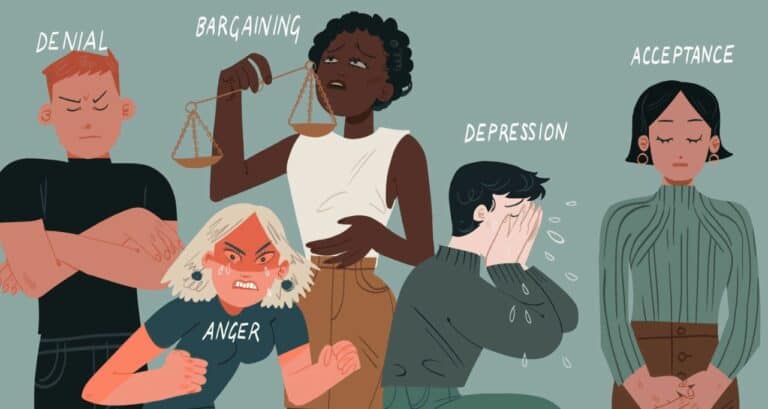
Grief counseling is a process that helps individuals focus on the difficult circumstances associated with loss. While there are different types and models of it, they all generally include five stages: shock and denial, pain and guilt, anger and bargaining, sadness and depression, and acceptance and hope.
At each stage people experience unique emotions that can be overwhelming to process on their own. Grief counselors are trained professionals who use their expertise to help individuals understand the natural processes of grief while helping them find peace, healing and new meaning in life after loss.
Shock and Denial
In the first stage of shock and denial the individual may feel numb or isolated — it may take a while before the reality sinks in. In this stage it’s important for grievers to practice self-care such as getting enough rest, trying calming activities like yoga or meditation, and seeking comfort from supportive family members or friends.
Pain and Guilt
The second stage involves pain and guilt — feelings such as sadness and despair may surface as grievers come to terms with their loss. It’s normal for these feelings to be intense during this time — talking through them with a friend or therapist will help the individual begin to cope with this wave of emotion.
Anger and Bargaining
The third stage is characterized by anger and bargaining — often times those grieving will blame themselves for not doing enough or bargain with an unseen higher power in an attempt to reverse their loss. At this point professional help may become necessary if the individual finds themselves emotionally overwhelmed by these feelings.
Sadness and Depression
The fourth stage involves sadness and depression as grievers come to terms with their loss — it’s normal for individuals to feel isolated from others during this time, but support from loved ones can offer some much needed comfort. Professional therapy should also be considered if talking through your circumstances alone is not enough for healing progressions.
Acceptance
Finally comes acceptance and hope – accepting that our grief cannot be undone but we have found ways to cope with it in healthier ways has helped us move forward into a new way of life – one full of peace and understanding despite our pain. This type of cognitive shift can only occur when we are given space by others – both professionally trained individuals (therapists) and our social circles (family & friends).

Grief counseling can be a powerful resource and treatment tool for those struggling with intense emotions after a loss. Professional counselors are trained to help individuals process their pain in healthy ways while offering understanding and compassion during difficult times.
Research has shown that it is highly effective in helping individuals understand the normal stages of grief, as well as identifying and resolving conflicting feelings that may arise from loss. Grief counseling offers a safe environment where grievers can talk openly about their struggles without fear of judgment or stigma. Counselors use therapeutic techniques such as cognitive-behavioral therapy (CBT), solution-focused therapy, existential therapy, expressive arts therapy, and narrative therapy to identify and address any conflicts or barriers the individual may be facing on the path to healing.
Above all, grief counselors provide unconditional emotional support while encouraging grieving individuals to practice patience. It’s important to remember that everyone deals with emotional pain differently, so it’s okay if the individual doesn’t make quick strides while they’re still adjusting to life after loss. Grief counselors also provide practical tools such as self-care tips or coping strategies that can help each individual find peace in their own unique way.
Grief counseling helps people recognize and accept their loss while providing helpful guidance through the healing process. The benefits of professional help is not only recommended, but often necessary for successful progressions in managing emotions related to grief.
Grief counseling vs grief therapy. What is the difference?
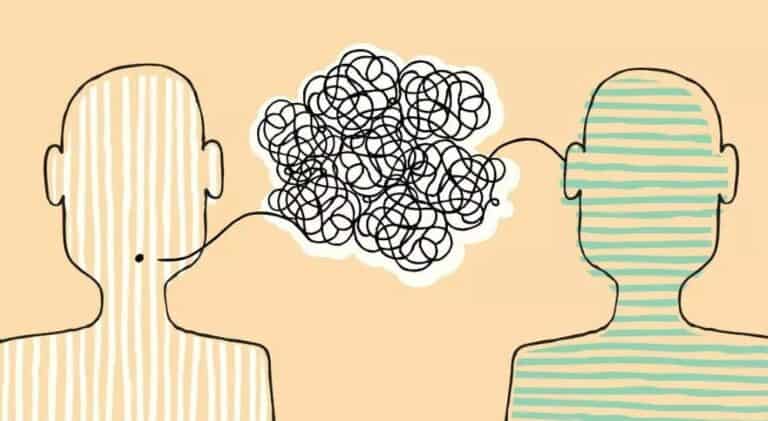
Grief Counseling
Grief counseling is a type of therapy that helps individuals cope with the emotional challenges associated with loss. This form of therapy includes therapeutic conversations to help grievers understand and identify their feelings, process their pain in healthy ways, and practice self-care during difficult times. Grief counselors provide supportive guidance to those grieving, helping them find meaning and acceptance after their loss.
Grief Therapy
Grief therapy is an umbrella term for types of therapies that help individuals heal from grief and loss. This can include cognitive-behavioral therapy (CBT), solution-focused therapy, existential therapy, expressive arts therapy, or narrative therapy which all use techniques to help individuals identify and address any conflicts or barriers they may be facing as they try to move forward in life after loss. Grief therapists are trained professionals who offer compassionate care while providing practical tools such as coping strategies or self-care tips to help each individual find peace in their own way.
Is There a Difference?
The main difference between grief counseling and grief therapy is that the former focuses more on providing emotional support while the latter uses more advanced therapeutic techniques to identify and resolve issues related to grief. Thus, it can be said that grief counseling is a subset of grief therapy since it falls under the wider umbrella term for various therapies used for managing emotions related to loss. Northstar Counseling and Therapy uses both approaches, because both forms of assistance are beneficial in helping individuals cope with the intense emotions associated with experiencing a significant loss.
What can I expect during the grief counseling process?
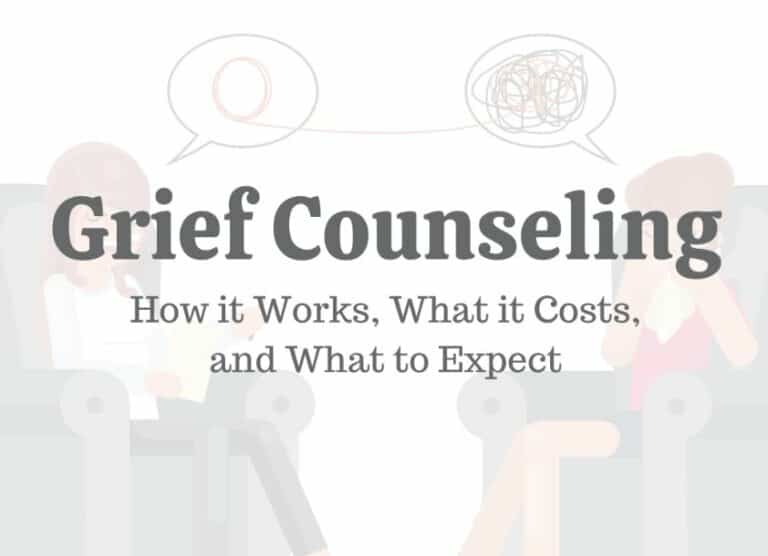
Initial Session
Grief counseling usually begins with a one-on-one session between the counselor and individual. During this initial appointment, the counselor will ask questions about the individual’s experience and discuss what their goals are in terms of dealing with their grief. The counselor may also assess any risk factors such as depression or anxiety that may be part of the grieving process. After the first session, an appropriate therapy plan will be developed to meet each individual’s needs.
Ongoing Therapy
In subsequent sessions, counselors will continue to help individuals process their pain while providing unconditional support and understanding. Counselors may also use therapeutic techniques such as cognitive-behavioral therapy (CBT), solution-focused therapy, expressive arts therapy, and narrative therapy to help individuals identify and address any conflicts or barriers they may be facing on the path to healing. The goal is for individuals to find peace and acceptance in their own unique way, through self-reflection and constructive dialogue with their therapist.
Ending Sessions
At the end of each session, counselors will review progress made since the initial visit and offer feedback on any struggles or challenges that may have arisen since then. The sessions should come to an end when it is no longer needed — although healing can often take some time, eventually individuals should feel ready to move forward in life without feeling weighed down by unbearable emotions or guilt related to their loss.
What are the counseling techniques used for grief?
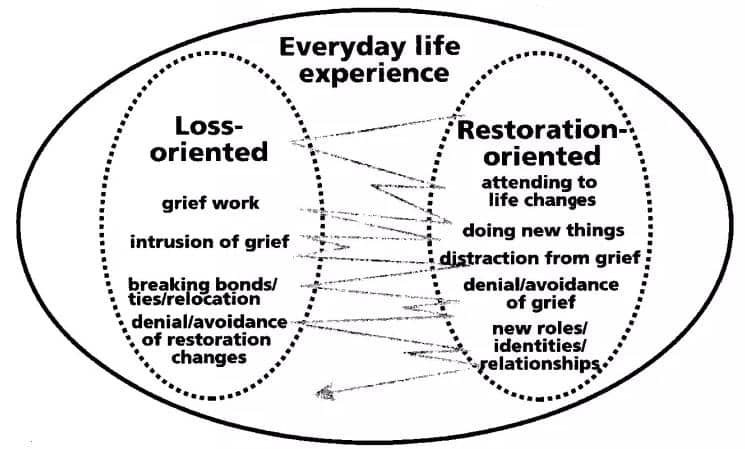
Once the reasons for the loss have been effectively identified, grief counselors can then proceed to different tactics of helping their clients cope with grief. The following are some examples:
Talking About the Deceased Person
One of the most common techniques used in grief counseling is talking about the deceased person. This can help grieving individuals to come to terms with their sense of loss and learn how to memorialize this person or cherish memories they shared. Talking about the deceased can also provide comfort by helping people feel connected with the person who has passed away.
Distinguishing Grief from Trauma
Grief therapy also involves differentiating between grief and trauma. While both are normal responses to loss, trauma may stem from more extreme circumstances such as death occurring suddenly or tragically or if the individual was closely attached to the deceased person. It’s important for counselors to be aware of any signs of trauma so that they can offer appropriate support and coping strategies to address these feelings.
Addressing Feelings of Guilt
Finally, it’s important for counselors to help individuals understand and process feelings of guilt associated with their grief. People often feel guilty for not being able to “fix” the situation or for feeling a certain way about their experience. Counselors will work with their clients in understanding that guilt is a normal emotion following a loss and help them find healthy ways of expressing these emotions and finding resolution through conversations and activities focused on honoring the memory of their loved one.
What are some helpful tips for someone with grief?

It takes time to accept that a loved one is gone. Give yourself time to feel bad. It is okay to talk about your feelings with friends, family and your community. This will help you feel better and be a huge benefit to your overall health. Remember to celebrate your loved one in a way that would make them happy. A few practices below will help you recover quickly.
Acknowledge Your Feelings
One of the most important tips to remember when going through grief and loss is that it’s okay to feel different emotions. It’s important to acknowledge your sadness, anger, guilt, or any other feeling you may experience throughout the process. This can provide immense relief in being able to recognize and express each emotion without judging or criticizing yourself for how you’re handling things.
Create a Support System
It is also important to create a support system as you go through this journey. Reach out to friends, family, colleagues and others who can offer comfort during your time of bereavement. Share stories about your loved one and allow yourself to accept help from those around you. Sometimes just having someone listen feels like a weight off your shoulders!
Take Care of Yourself Physically & Emotionally
Finally, don’t forget to take care of yourself both mentally and physically. Exercise, eat healthy foods and get plenty of rest- all these are essential for managing stress and emotion during grieving times. Additionally consider activities such as yoga or mindfulness which can help ground you emotionally and give you more clarity on how to cope with difficult situations.
Where do I begin with a grief therapist?

It can be overwhelming to start the process of grief counseling, but it’s important to remember that you don’t have to go through this alone. It is best to begin this journey with a qualified therapist who can provide personalized guidance and support as you work through your emotions and find healthy ways of coping with your grief. With the right professional resources, anyone can learn how to navigate their feelings of loss and build a new life that honors their memories of loved ones while also finding peace and joy again.
We are located in Frisco, TX. However, if you are outside of the area and interested in grief counseling we can still help via our telehealth therapy option. We have offered counseling via the phone, however, we have found online video sessions to be much more successful for our clients in general. Contact us today for a free fifteen minute discovery session.
Free Consultation
Worried therapy won’t meet your needs? This is exactly why we offer a free consultation.
Meet your therapist for free and decide for yourself how we can help you.
Share:
Your Guide to Domestic Abuse and Therapy
Domestic abuse survivors often grapple with deep emotional scars long after the immediate danger has passed. The journey to healing is personal, intricate, and unique to each individual. This article sheds light on the most effective therapeutic approaches tailored for survivors, from the evidence-backed Trauma-Focused Cognitive Behavioral Therapy to the empowering narrative sessions. Dive into an exploration of these therapeutic modalities, understanding their core principles and why they resonate powerfully with those seeking solace and strength after enduring abuse. Empowerment, validation, and a renewed sense of self-wait.
Empowering Healing: Unraveling the Impact of Therapy on Sexual Abuse Recovery
We’ll dive into the transformative power of therapy in the journey towards healing and reclaiming one’s life after experiencing sexual abuse. Through expert insights, survivor stories, and cutting-edge research, this compelling narrative explores the various therapeutic approaches that have proven to be effective in addressing the deep-seated emotional wounds, fears, and trauma that can result from sexual abuse. By shedding light on the multifaceted nature of recovery, “Empowering Healing” aims to provide hope and guidance to survivors and their loved ones, while also fostering a deeper understanding of the crucial role therapy plays in overcoming the lingering effects of abuse and ultimately, in paving the way for a brighter, more resilient future.
PTSD Counseling & Therapy
Post-traumatic stress disorder (PTSD) is a mental health problem that some people develop after experiencing or witnessing a life-threatening event, like combat, a natural disaster, a car accident, or sexual assault. While it is normal to have upsetting memories, feel on edge, or have trouble sleeping after this kind of experience, if these symptoms last more than a few weeks, it may be PTSD.
5 Ways to Empower Physical Abuse Victims With Therapy
Healing from physical abuse can be a long and difficult journey, but therapy can be a powerful tool to help survivors regain control of their lives. In this guide, we will explore five ways therapy can empower physical abuse victims to heal from their wounds and move forward in life. From building a support system to developing healthy coping strategies, therapy can help survivors reclaim their sense of self-worth, strength, and resilience.
Grief Counseling | Therapy in Frisco Texas
At North Star Frisco, we understand that grief can be a profoundly challenging and life-changing experience. Our compassionate and experienced therapists are dedicated to providing personalized grief counseling and therapy to help you navigate the complex emotions that come with loss. We create a safe and supportive environment where you can explore your feelings, gain understanding, and develop coping strategies to foster healing and growth. Let us help you transform your grieving journey into a path towards resilience and renewed purpose.
What Is Childhood Trauma | The Ultimate Guide To Healing
Meet With A Trauma Therapist Struggling with trauma from your







